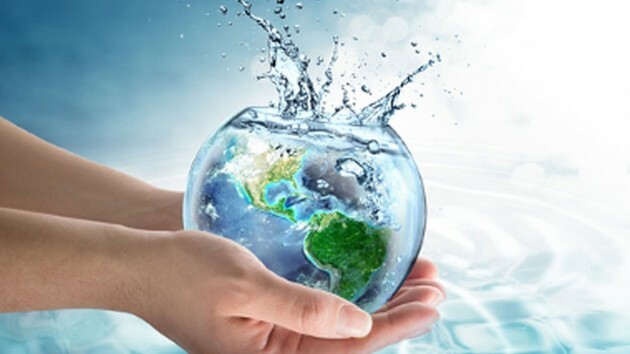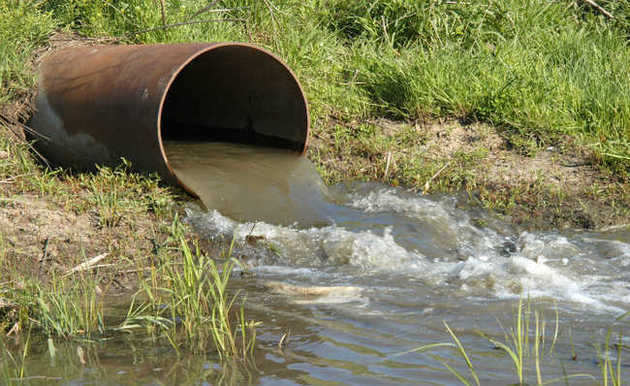World Water Day (DMA) is celebrated on the day March 22nd. The date was established by the United Nations (UN) on February 21, 1993.
The objective was to alert the world population about the preservation of natural resources and, above all, of water.
The choice of a day dedicated to this natural heritage of the planet highlights its great importance in people's lives and in the balance of ecosystems.
In addition, it highlights the need to make the population aware of the care and preservation of this valuable asset, which has been indiscriminately exploited by man for a long time.

Universal Declaration of Water Rights
On March 22, 1992, in the city of Rio de Janeiro, where a United Nations Conference on Development and Environment, the UN released an important document that highlights the importance of preserving the Water.
Environmental awareness is one of the relevant themes presented in the declaration. In addition, it addresses the preservation and protection of the planet's water resources.
“The balance and future of our planet depend on the preservation of water and its cycles. These must remain intact and functioning normally to ensure the continuity of life on Earth. This balance depends, in particular, on the preservation of the seas and oceans, where the cycles begin.” (Article 4 of the "Universal Declaration of Water Rights")
The Universal Declaration of Water Rights is divided into ten articles, which highlight:
- Art. 1st: Water is part of the planet's heritage.
- Art. 2nd: Water is the sap of our planet, that is, it is the essential condition of life for every plant, animal or human being.
- Art. 3rd: The natural resources for transforming water into drinking water are slow, fragile and very limited.
- Art. 4th: The balance and future of our planet depend on the preservation of water and its cycles.
- Art. 5: Water is not just a legacy of our predecessors; it is, above all, a loan to our successors.
- Art. 6th: Water is not a free gift from nature; it has an economic value: one needs to know that it is sometimes rare and expensive and that it may well become scarce in any region of the world.
- Art. 7th: Water must not be wasted, polluted or poisoned.
- Art. 8: The use of water implies respect for the law.
- Art. 9: Water management imposes a balance between the imperatives of its protection and economic, health and social needs.
- Art. 10th: Water management planning must take into account solidarity and consensus due to its unequal distribution over the Earth.
World Water Day Themes
Every year, a theme is chosen by the UN to celebrate “World Water Day”. Check out the agenda since 1994:
- 1994: Taking care of our water resources is everyone's job.
- 1995: Women and Water
- 1996: Water for thirsty cities
- 1997: Waters of the World: is there enough?
- 1998: Groundwater: The Invisible Resource
- 1999: Everyone lives downriver
- 2000: Water for the 21st century
- 2001: Water and health
- 2002: Water for development
- 2003: Water for the future
- 2004: Water and Disasters
- 2005: Water for Life
- 2006: Water and Culture
- 2007: Dealing with water scarcity
- 2008: Sanitation
- 2009: Transboundary Waters: sharing water, sharing opportunities
- 2010: Clean water for a healthy world
- 2011: Water for Cities: Responding to the Urban Challenge
- 2012: Water and Food Security
- 2013: Cooperation for water
- 2014: Water and Energy
- 2015: Water and Sustainable Development
- 2016: Water and Jobs
- 2017: Waste Water
- 2018: Natural Water Solutions
Water pollution
Water pollution is the result of changes in its quality that make it unfit for consumption and harmful to living organisms that inhabit it.
Problems such as urbanization, construction of roads, industries, damming, deforestation, expansion of agriculture and livestock, considerably affect the environment.
All of them compromise various renewable and non-renewable natural resources, bringing imbalances to soil, water and air. As an example, we have water pollution (rivers, seas and oceans) that affects not only human beings, but also the entire ecosystem.

Statistics from the United Nations (UN) show that 25% of the planet's population does not have access to drinking water and about 58% of municipalities in Brazil do not have treated water. It is worth remembering that Brazil is a country that holds around 12% of the planet's fresh water.
In addition, about 20 countries already suffer from the water shortage, which corresponds to 40% of the world population, which generates many social and public health problems.
the importance of water
Water is one of the most essential finite resources for the survival of life on the planet, as it collaborates with natural cycles and is fundamental for food production.
It is important to highlight that the human being is formed largely by water (about 70% of our body).
Furthermore, the earth's surface is made up of approximately 70% water. Much of it is salt water from the seas and oceans (about 97%), leaving about 3% fresh water (from rivers), where only 0.01% is considered suitable for consumption.
If we look from space, it is difficult to understand why planet Earth has this name. This is because the portions of water are immense, which leads us to see a blue planet, that is, a "water planet".
Leaving this question of naming aside, let's think about what our life would be like if we didn't have water for drinking, cooking, and bathing.
Therefore, water is part of our daily life, being an essential element for all living beings on the planet as it helps to maintain biodiversity.
According to the UN, every 20 years the world's water consumption doubles. This could generate a huge supply crisis that will affect an estimated 2.8 billion people from 2025 onwards.
Learn more at:
- The Importance of Water
- Water Crisis in Brazil
- water cycle
- Environmental education
water preservation
As we have seen, water is of such importance in people's lives, which reinforces the need to preserve this very valuable asset.
Thus, small attitudes of each citizen are essential for the preservation of this important source of wealth for nature, as well as for the entire planet.
- Ecological and environmental awareness (do not throw garbage and waste in inappropriate environments, make the correct separation of garbage, among others)
- Rational and sustainable use of water resources (water rationing and reuse, quick showers, turning off the faucet while brushing your teeth and washing the dishes, among others)
- Preservation of water (do not throw garbage into rivers, seas and oceans)
- Better management and management of water resources (insertion of public policies)
Phrases for World Water Day
A few sentences about water are important to reflect on this very valuable asset:
- “It was easier for me to find the laws with which the celestial bodies move, which are millions of kilometers away, than to define the laws of the movement of the water that flows in front of my eyes.” (Galileo Galilei)
- “Good quality water is like health or freedom: it only has value when it runs out.” (Guimarães Rosa)
- “As long as the well doesn't dry up, we don't know how to value water.” (Thomas Fuller)
- “Water is nature's vehicle.” (Leonardo da Vinci)
- “Water is the beginning of all things.” (Thales from Miletus)
